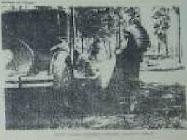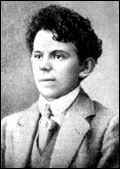8.02.2003
What bearing does this have on poetics? If you accept the existence of something we can call the universal, as expressed in the many-in-one, then there is no such thing as an autonomous, self-referential artifact; everything persists in relationship, a circumstance which has moral implications. You cannot avoid the communicative function, the cognitive aspect, the social relationship, of the artwork. This may sound like I'm contradicting earlier comments here; but what I railed against before were forms of poetics theory & criticism which stem from a politics already riven with a pre-existing duality (basically, us vs. them), a partisan commitment to, let's call it, class struggle. Instead I asserted a unity of humane values, a "tree of life", from which stem both an ethical way of life in the world and artistic activity. That this "tree of life" is under attack by forms of greed, complacency, epicureanism, misguided ideologies, authoritarianism, and violence does not mean one necessarily must assent to a manichean world view which identifies evil with capital and good with labor; evil with dull mainstream inter-communication vs. good avant-garde artifact-production. This notion I have of art which communicates universal values is actually a challenge to invite poetry to engage with the fully-human existential & political & social problems facing the world.
Labels:
holism,
oppositionalism,
polemics2,
unity
Subscribe to:
Post Comments (Atom)



No comments:
Post a Comment